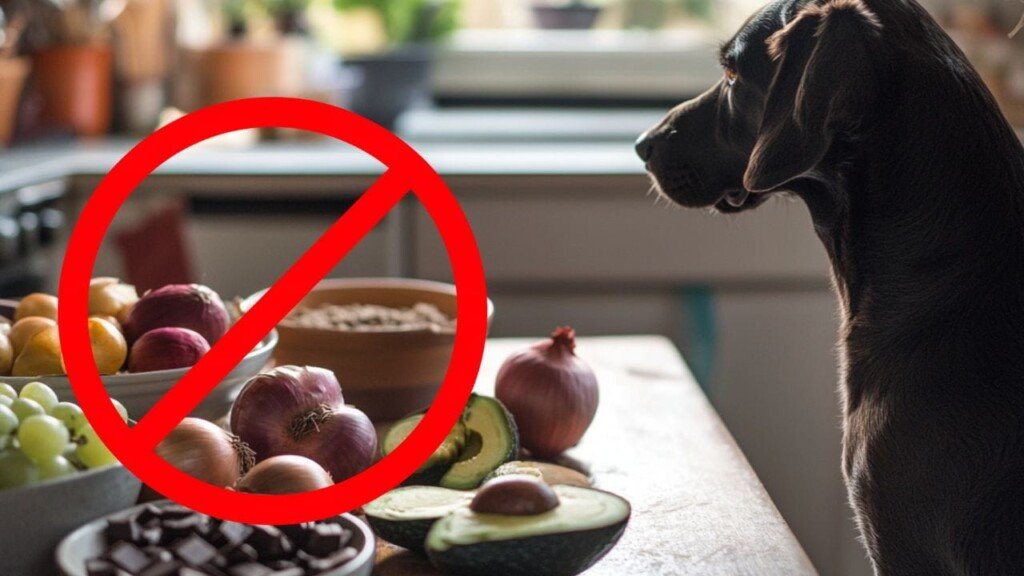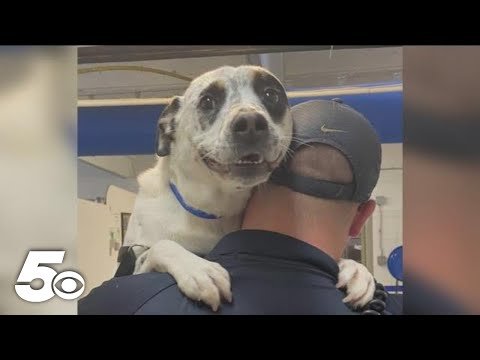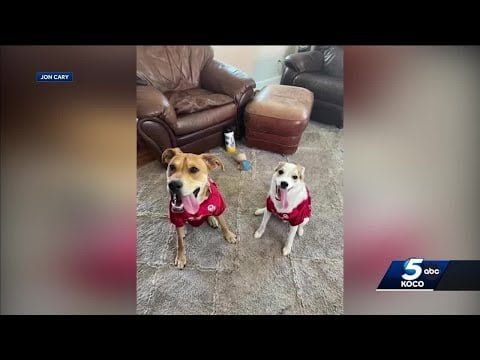As dog owners, we often want to share our food with our furry friends.
However, not all human foods are safe for dogs to consume.
Some can cause mild discomfort, while others can be life-threatening.
It’s crucial to be aware of which foods are toxic to dogs to keep them safe and healthy.
Here’s a list of 10 common human foods that you should never feed your canine companion.
1. Chocolate
Chocolate contains theobromine, a substance that dogs can’t metabolize effectively.
Even small amounts can cause vomiting, diarrhea, and in severe cases, heart problems and seizures.
Dark chocolate and baking chocolate are the most dangerous due to their higher theobromine content.
Always keep chocolate out of your dog’s reach, especially during holidays.
2. Grapes and Raisins
Grapes and raisins can cause rapid kidney failure in dogs.
Even a small amount can be toxic, and the effects can be severe.
Symptoms include vomiting, diarrhea, and lethargy.
If you suspect your dog has eaten grapes or raisins, seek veterinary care immediately.
3. Onions and Garlic
All members of the onion family (including garlic, chives, and leeks) are toxic to dogs.
These foods can damage a dog’s red blood cells, leading to anemia.
Symptoms may not appear for several days after ingestion.
Be cautious with foods containing onion or garlic powder as well.
4. Xylitol
Xylitol is an artificial sweetener found in many sugar-free products, including gum and candy.
It can cause a rapid drop in blood sugar and liver failure in dogs.
Even small amounts can be extremely dangerous.
Always check labels for xylitol, especially in peanut butter, as some brands use this sweetener.
5. Avocado
Avocados contain persin, which can cause vomiting and diarrhea in dogs.
The pit also poses a choking hazard and can cause intestinal blockage if swallowed.
While some dogs may tolerate small amounts of avocado flesh, it’s best to avoid it entirely.
Keep guacamole and other avocado-based foods out of your dog’s reach.

6. Macadamia Nuts
Macadamia nuts can cause weakness, depression, vomiting, and hyperthermia in dogs.
The exact substance that causes toxicity is unknown, but even small amounts can be harmful.
Symptoms usually appear within 12 hours of ingestion and can last up to 48 hours.
Be especially careful with baked goods containing macadamia nuts.
7. Alcohol
Alcoholic beverages and food products containing alcohol can be extremely dangerous to dogs.
Even small amounts can cause vomiting, diarrhea, central nervous system depression, and difficulty breathing.
In severe cases, alcohol ingestion can lead to coma or death.
Never leave alcoholic drinks unattended around your dog.
8. Caffeine
Coffee, tea, and other caffeinated beverages can be very dangerous for dogs.
Caffeine can cause restlessness, rapid breathing, heart palpitations, and muscle tremors.
Keep coffee grounds and tea bags out of your dog’s reach.
Be aware that some medications and supplements also contain caffeine.

9. Raw or Undercooked Meat, Eggs, and Bones
Raw meat and eggs can contain bacteria that cause food poisoning.
Raw eggs also contain an enzyme that can lead to skin and coat problems.
Raw bones can splinter and cause choking or digestive tract damage.
Always cook meat and eggs thoroughly before feeding them to your dog.
10. Salty Snack Foods
Excessive salt intake can cause excessive thirst and urination in dogs.
In severe cases, it can lead to sodium ion poisoning.
Symptoms include vomiting, diarrhea, depression, tremors, and seizures.
Keep salty snacks like potato chips and pretzels away from your furry friend.
Want to keep up to date with new animal stories?
Conclusion
Being aware of these toxic foods is crucial for every dog owner.
While this list covers common hazards, it’s not exhaustive.
Always research new foods before offering them to your dog.
When in doubt, stick to dog-specific treats and consult your veterinarian.
If you suspect your dog has eaten something toxic, contact your vet or an animal poison control center immediately.
By being vigilant about what your dog eats, you can help ensure a long, healthy, and happy life for your furry companion.
Share this article on Facebook to help fellow dog owners keep their furry friends safe from harmful foods!
SHARE now with your friends!


